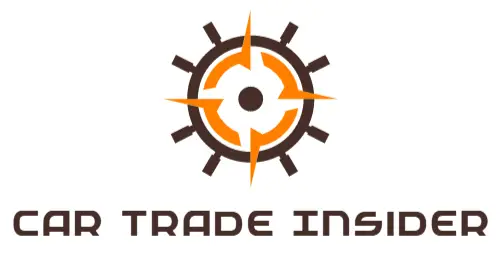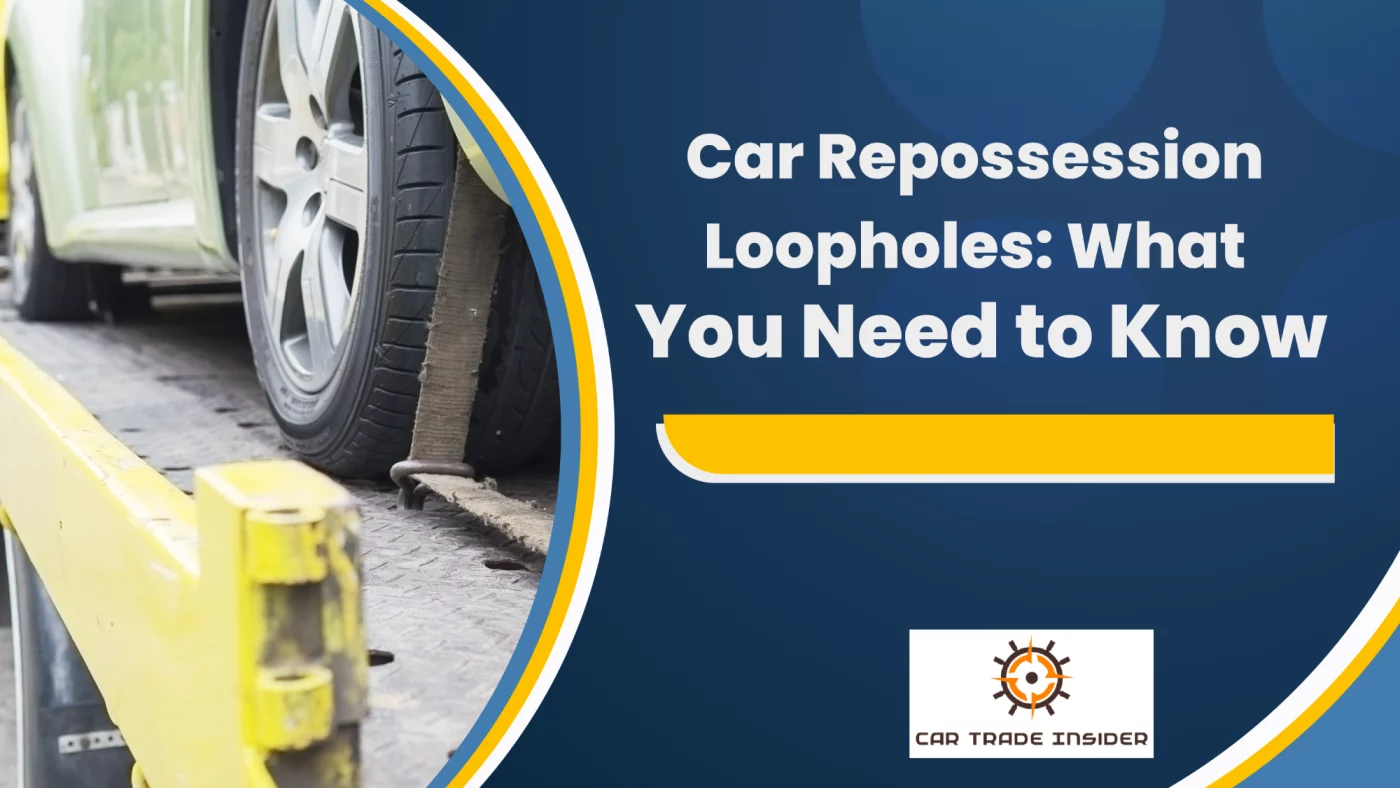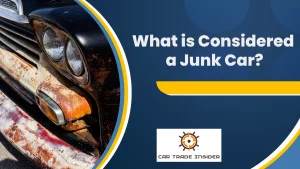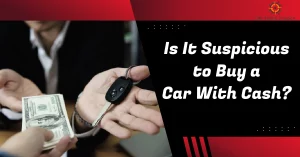Car repossession can be a distressing experience for anyone facing financial difficulties. It’s not uncommon to find oneself scouring the internet for solutions like ‘how to avoid car repossession.
However, it’s important to understand that there are certain loopholes and legal rights that consumers can utilize to protect themselves in such situations.
In this article, we will explore the concept of car repossession loopholes and provide valuable insights on how you can navigate these challenging circumstances.
Illegal actions like hiding your car, removing the GPS tracker, or secretly selling it can lead to more trouble. Instead, consider legal alternatives to avoid repossession, such as refinancing your loan, declaring bankruptcy if needed, or selling the vehicle with your lender’s permission. Keep in mind that the right of redemption isn’t guaranteed, and the lender may retain the car even if you fully repay the loan. Prioritize lawful solutions to protect yourself during repossession.
Understanding Car Repossession
Car repossession occurs when a lender takes back the vehicle from a borrower who has failed to meet their loan or lease obligations.
This typically happens when the borrower is consistently behind on payments or has defaulted on the loan agreement. Repossession is a legal process, but there are certain regulations in place to protect consumers from unfair practices.
The Repossession Process
The repossession process usually starts with a missed payment. Once a borrower falls behind on payments, the lender may issue a notice of default, warning the borrower about the impending repossession.
If the borrower continues to default, the lender can then proceed with repossessing the vehicle. Repossession can occur with or without prior notice, depending on the laws of the jurisdiction.
What is Wrongful Repossession?
Wrongful repossession occurs when a lender unlawfully repossesses a vehicle without following the proper legal procedures.
It can happen due to various reasons, such as violations of the repossession laws, breaching the peace during the repossession process, or failing to provide proper notice to the borrower. Wrongful repossession may provide grounds for legal action and potential remedies for the borrower.
Consumer Rights and Protections
As a consumer, you have specific rights and protections when it comes to car repossession. These rights vary depending on your location, but they generally include the right to receive notices and disclosures, the right to cure the default, and the right to redeem the vehicle before it is sold. It’s crucial to familiarize yourself with the laws in your area to understand the extent of your rights.
Your Rights as a Borrower
As a borrower, you have certain rights and protections when it comes to car repossession. Understanding your rights can help you navigate the repossession process and potentially identify any violations or misconduct by the lender.
Some common rights include receiving proper notice of repossession, the opportunity to cure the default, and the right to redeem the vehicle before it is sold. According to the National Consumer Law Center (NCLC), you have the right to redeem your car within a certain period after it’s been repossessed.
Common Myths about Car Repossession
There are several myths and misconceptions surrounding car repossession that can cause unnecessary stress and confusion. Let’s debunk some of the common myths:
Myth: Once the car is repossessed, I am no longer responsible for the debt.
- Fact: Repossession does not absolve you of financial responsibility. You may still owe the deficiency balance after the car is sold.
Myth: I can hide my car to prevent repossession.
- Fact: Intentionally hiding or concealing your vehicle can be considered fraud and may lead to legal consequences.
Myth: Repossession can happen anytime, anywhere.
- Fact: Repossession laws vary by jurisdiction, and lenders must follow specific procedures before seizing a vehicle.
Myth: I have no rights when it comes to repossession.
- Fact: Consumers have rights and protections under the law, and it’s important to understand and exercise them.
Myth: I can’t get a car loan after repossession.
- Fact: While it may be more challenging, obtaining a car loan after repossession is possible with time and responsible credit behavior.
Car Repossession Mistakes to Avoid
When it comes to car repossession loopholes, it’s crucial to steer clear of common mistakes that can worsen your situation. Here are some errors people often make and why you should avoid them:
- Hiding the car: Risky and can lead to legal consequences if discovered.
- Removing the GPS tracker: Tampering with the tracker can result in repossession and potential legal action.
- Falsely claiming to have sold the car: Making false statements about selling the car can lead to fraud charges.
- Ignoring communication from the lender: Ignoring calls or letters from your lender is a mistake that won’t make the problem disappear. Avoiding communication will only escalate the repossession process, putting you in a worse position.
Honesty and Collaboration are Key
If you’re facing the possibility of repossession, it’s important, to be honest with your lender and actively cooperate to find a resolution. While there are no legal loopholes that allow you to keep the car without making payments, there are ways to potentially delay or prevent repossession. By avoiding these common mistakes, you can protect yourself and work towards a better financial future.
How To Avoid Car Repossession
While the laws surrounding car repossession are designed to protect consumers, there are car repossession loopholes that can work in favor of borrowers. These loopholes often arise due to procedural errors on the part of the lender or violations of consumer protection laws.
By identifying these loopholes, borrowers can challenge the repossession and potentially regain possession of their vehicle.
1. Talking to the Bank for an Extension
Requesting an extension on the loan payment time from your bank can buy you additional time to catch up on missed payments and avoid repossession. Banks may grant extensions after reviewing your credit reports, though the loan amount might slightly decrease or the interest rate could increase, so it’s essential to understand the terms.
2. Make Up Late Payments
If you have fallen behind on your car payments, making up the late payments can help bring your loan back on track. Communicate with your lender to discuss your financial situation and explore options to catch up on payments. Some lenders may be willing to work out a repayment plan or provide temporary relief to avoid repossession.
3. Reinstate the Auto Loan
In certain cases, borrowers may have the option to reinstate their auto loan by paying the entire outstanding balance, including any fees and penalties. This can be a viable solution if you have the financial means to bring your loan up to date. Contact your lender to inquire about reinstatement procedures and requirements.
4. Car Redemption
Car redemption involves paying off the full remaining balance on the loan, along with any associated costs, to regain possession of the repossessed vehicle. This option may be available for a limited time after the repossession.
Redemption can be a complex process, and it’s advisable to consult with a legal professional to understand the specific requirements and implications.
5. Negotiating with the Lender
There are proactive steps you can take to negotiate with your lender and potentially avoid such a scenario. You may explore options like loan modifications or repayment plans, which can help you catch up on payments and avoid repossession.
Additionally, consider specific negotiation tactics such as voluntarily surrendering the car in exchange for a reduction or dismissal of your deficiency balance, or selling the car yourself to potentially pay off your debt in full. Remember to document any agreements in writing to protect yourself.
6. Refinance the Car Loan
Refinancing your car loan can be an effective strategy to avoid repossession. By refinancing, you can negotiate new loan terms and potentially lower your monthly payments.
This can provide relief and make it more manageable for you to keep up with your payments. Consider reaching out to different lenders to explore refinancing options that suit your needs.
Risk: If you refinance your loan, you may end up with a higher interest rate or a shorter term.
7. File for Bankruptcy
Filing for bankruptcy should be considered a last resort, as it has significant long-term implications on your credit and financial standing.
However, bankruptcy can provide temporary relief by triggering an automatic stay, which prevents creditors from pursuing repossession or collection activities. Consult with a bankruptcy attorney to understand the eligibility criteria and potential consequences before making this decision.
Risk: If you file for bankruptcy, you may have to give up other assets, such as your home or your retirement savings.
8. Seeking Legal Assistance
In complex cases or situations where you believe your rights have been violated, it is advisable to seek legal assistance. An experienced attorney can review your case, identify any potential legal loopholes, and guide you through the legal process.
They can also represent your interests and negotiate with the lender on your behalf, increasing your chances of a favorable outcome.
Consequences of Car Repossession
Car repossession can have far-reaching consequences beyond the loss of your vehicle. It can negatively impact your credit score, making it challenging to secure future loans or credit.
Additionally, the repossession process may involve additional fees and costs that the borrower is responsible for. Understanding these consequences can motivate individuals to take proactive steps to avoid repossession.
Conclusion
Car repossession can be a difficult and overwhelming experience, but it’s crucial to remember that you have rights and options.
By understanding the car repossession process, identifying loopholes, and exploring alternative solutions, you can navigate this challenging situation more effectively. Remember to prioritize rebuilding your credit and seek legal assistance when necessary.
Further Read: Can I repossess a car I sold to a friend?
FAQs
1. Can I stop car repossession once it has started?
It may be possible to halt the repossession process by reaching an agreement with your lender, catching up on payments, or filing for bankruptcy.
2. Will my credit be ruined forever after car repossession?
While car repossession can have a significant impact on your credit, with time and responsible credit management, you can rebuild your credit over time.
3. What happens to my personal belongings inside the repossessed car?
Lenders are generally not responsible for personal items left in a repossessed vehicle. It’s advisable to remove your belongings before repossession occurs.
4. How long does a car repossession stay on my credit report?
Car repossession can stay on your credit report for up to seven years, negatively impacting your credit score during that time.
5. What Happens if You Hide Your Car From Repossession?
Hiding or concealing a vehicle to prevent repossession is not a recommended strategy. It’s important to understand that intentionally hiding a vehicle can be considered fraud and may result in legal consequences. Instead of resorting to such actions, borrowers should explore legal alternatives and negotiate with their lenders to find a mutually agreeable solution.
6. How do I stop my car from being repossessed?
To prevent car repossession, you can make up late payments, reinstate the auto loan, negotiate with your creditors, refinance the car loan, or explore alternatives like selling the vehicle. It’s crucial to communicate with your lender and explore all available options.
7. What is a Deficiency Balance?
After a vehicle is repossessed and sold, there may be a difference between the outstanding loan balance and the sale proceeds. This difference is known as a deficiency balance.
8. What happens to the debt when a car is repossessed?
When a car is repossessed, the lender typically sells the car at an auction to recover the amount that was owed. If the car sells for less than the remaining loan balance, the borrower will still owe the difference, known as a deficiency balance. This amount includes the remaining loan balance, repossession costs, and auction fees.
9. How long before a car is repossessed?
The timeline before a car is repossessed can differ depending on the lender and the terms of the loan contract. However, generally, a lender might start the repossession process after a loan is 60 to 90 days delinquent.
10. What happens to your tag when your car is repossessed?
In most cases, personal belongings including the tag or license plate will be removed from the car before it is auctioned. The repossession company usually returns them to the borrower. However, laws vary by state, so it’s crucial to check local regulations.
11. How to fix credit after a car repossession?
Fixing credit after a car repossession takes time and effort. Start by paying off any remaining debt from the repossession. Then, consistently make payments on time for other debts. Keep your credit utilization low, and consider getting a secured credit card to build a positive credit history.
12. Can my car be repossessed if I make partial payments?
Yes, your car can still be repossessed if you’re making partial payments. Unless you have a written agreement with the lender that allows for partial payments, the lender can repossess the car if full payments are not made as per the original loan agreement. Here is the detailed article on can my car be repossessed if I make partial payments.
13. How soon can I get my repossessed car back?
Getting a repossessed car back depends on the lender’s policies and state laws. Some lenders may allow for the car to be retrieved if the overdue payments, along with any repossession and storage fees, are paid in full. However, in some cases, it may not be possible to get the car back after repossession.
Some key takeaways include:
- Wrongful repossession can occur when lenders unlawfully seize vehicles without following proper procedures, potentially providing grounds for legal action.
- Car repossession can happen when borrowers default on their loan or lease agreements, and lenders have the right to repossess the vehicle under such circumstances.
- A deficiency balance refers to the outstanding amount remaining after a repossessed vehicle is sold, and borrowers may be responsible for paying this balance depending on the terms of their loan.
- Hiding a vehicle to prevent repossession is considered fraudulent and can lead to legal consequences, so it’s important to explore legal alternatives instead.
- Strategies to avoid car repossession include making up late payments, reinstating the auto loan, redeeming the vehicle, negotiating with creditors, refinancing the car loan, and filing for bankruptcy as a last resort.
- Borrowers have rights during the repossession process, such as receiving proper notice, the opportunity to cure the default, and the right to redeem the vehicle.





